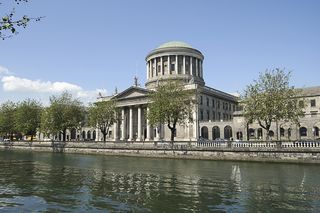Businesses got just 10pc of €1.3bn TBESS energy subsidy
Only €77.8m has been disbursed so far with the fund closing in three weeks
Paschal Donohue introduced the scheme in Budget 2023 to provide relief to businesses dealing with sudden rises in energy costs. Photo: PA — © PA
The Government’s flagship energy price relief scheme for businesses is on track to pay out just 10pc of its available €1.3bn in funding once it closes in three weeks.
Just €77.8m of the money allocated to the Temporary Business Energy Support Scheme (TBESS) has been disbursed so far, according to the latest Revenue statistics up to May 4.
At current rates of new registrations and claims, that total will reach only about €130m by May 31, when the scheme closes.
The gap between the estimated need and the reality of claims raises questions about the concept, design and implementation of the scheme, which was introduced by then-finance minister Paschal Donohue in Budget 2023 to provide relief to businesses dealing with sudden rises in energy costs.
So far 28,495 firms have registered for TBESS, which pays up to half the increased energy costs of companies whose electricity or gas bills went up by 30pc or more.
But just 18,217 have submitted completed claims to the scheme to date, resulting in limited payout levels.
Yet even if the other 10,000 receive approval on their forthcoming claims, it would add only about another €43m to the total TBESS payment amount, assuming future claims are of a similar size to past claims.
Moreover, new registrations to the scheme have slowed to a trickle over the last month, with about 750 companies signing up between April 13 and May 4.
If that many more join in the next three weeks, the total TBESS outlay should reach about €130m – far below what was originally conceived of when the Government launched the scheme last September.
TBESS has been affected by slow take-up since the start.
Initially entire categories of businesses, such as accountants, solicitors, doctors and dentists, were excluded from the scheme – an oversight that had to be corrected in the Finance Bill.
While firms did at first rush to apply for tax-clearance certificates to meet the scheme’s eligibility criteria, it wasn’t long before companies, their accountants and business lobby groups were complaining about the complexity of the application process and high barriers to qualification.
Changes addressing these concerns were eventually pushed through in February’s cost-of-living measures, which lowered the billing threshold for eligibility and enhanced the reimbursement available.
But despite these adjustments, the scheme has never gained momentum or widespread acceptance among businesses.














